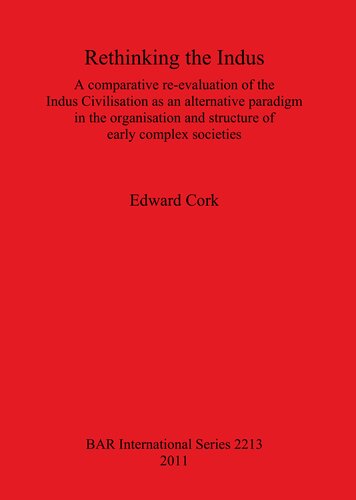

Most ebook files are in PDF format, so you can easily read them using various software such as Foxit Reader or directly on the Google Chrome browser.
Some ebook files are released by publishers in other formats such as .awz, .mobi, .epub, .fb2, etc. You may need to install specific software to read these formats on mobile/PC, such as Calibre.
Please read the tutorial at this link: https://ebookbell.com/faq
We offer FREE conversion to the popular formats you request; however, this may take some time. Therefore, right after payment, please email us, and we will try to provide the service as quickly as possible.
For some exceptional file formats or broken links (if any), please refrain from opening any disputes. Instead, email us first, and we will try to assist within a maximum of 6 hours.
EbookBell Team

5.0
28 reviewsIn many ways, we are presented today with a situation much like that described for Indus Civilisation studies in the 1960s: a particular model has been favoured for some time, but it is yet to be rigorously investigated, especially in the light of recentadvances in data, methodologies and theory. This study aims to do that, employing a comparative approach with the aim of testing many of the explicit and implicit comparisons with Mesopotamia that are at the heart of this interpretation. Three types of data are considered: domestic architecture, metalwork and settlement patterns. Each is dealt with by a single chapter, which begins by identifying the relevance of that dataset to the 'alternative paradigm' interpretation, and the individual statements made of that dataset which form a part of the wider interpretation. The three chapters proceed to test those statements using comparative data from Mesopotamia, Egypt, Iran and the Gulf, depending on the availability of suitable comparative material. The theoretical background to the approach and the methodologies adopted is discussed in the following chapter. A feature of this study is that, having described an interpretation of the Indus Civilisation currently enjoying common currency, it sets out to challenge and investigate this academic position. In doing so, especially due to the methodological decision to test specific statements, it indiscriminately scrutinizes a large number of statements and interpretations made by a number of scholars.